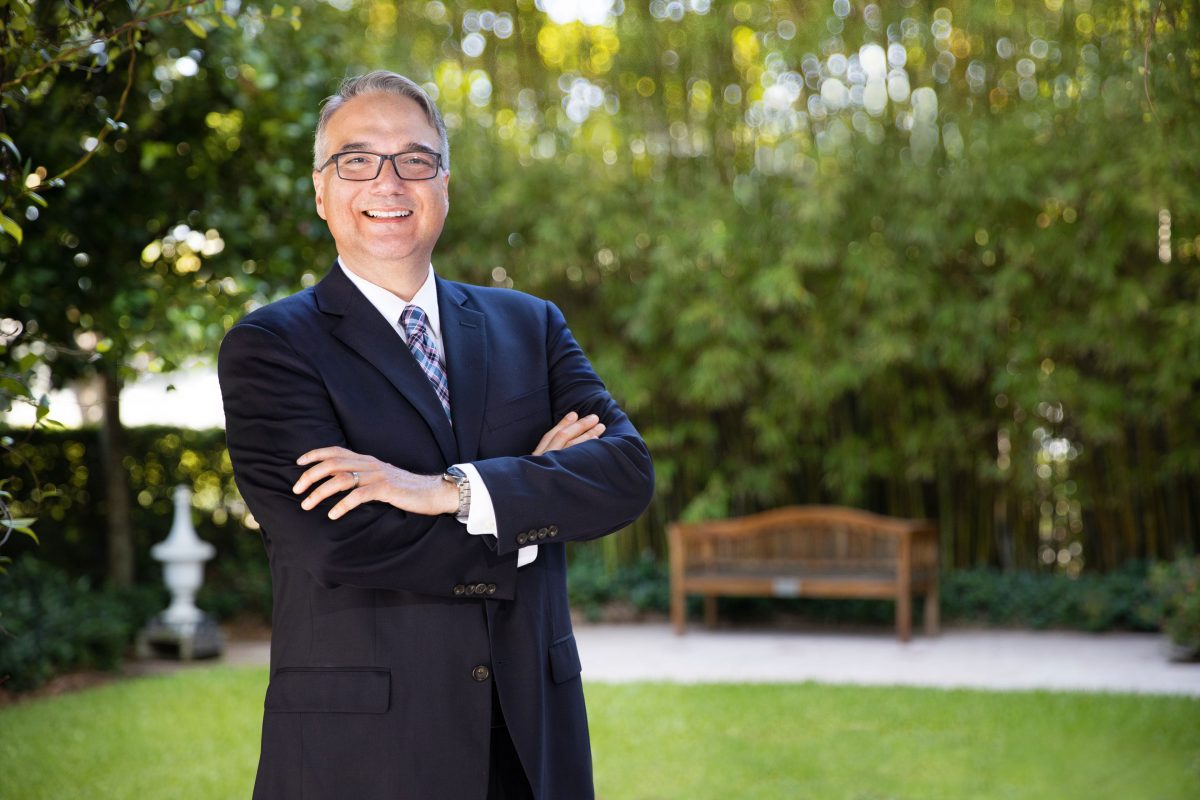The social media posts by Professor Daniel Ravicher, a lecturer at the University of Miami School of Law, have continued to receive attention from the media, and he has continued to conduct interviews with various media outlets.
Despite Ravicher’s public comments to the contrary, he has not been “fired,” nor “pushed out,” nor “cancelled,” nor otherwise threatened with termination of his contract by me or anyone else in the UM leadership because of his social media posts. Ravicher continues to teach his Practicum this fall and is on the law school’s schedule for spring. In addition, Ravicher’s support of President Donald Trump is not the issue here. Just as there are many Joe Biden supporters at UM, so too are there many UM community members who openly support Trump.
Unfortunately, Ravicher has made numerous inaccurate statements in his tweets and media interviews. Many of the things he has said about our exchanges are simply not true. I find that disappointing because I otherwise have had respect and appreciation for this professor’s commitment to his students and his teaching.
UM and the School of Law value diversity, including the expression of political opinions and viewpoints. We protect and celebrate the freedom of expression of everyone, while we recognize that as faculty—and especially as law professors who are officers of the court— we have important and specific duties requiring us to act and speak professionally and mindfully whether on or off campus. We are role models for our students, both inside and outside of the classroom.
There no doubt can be a value for provocative speech in the public square, perhaps especially when offered by professors. As a longtime LGBTQ attorney/activist, I know that not so long ago “the love that dared not speak its name” was considered too controversial to be referenced approvingly in polite company and certainly not by educators, in or outside of classrooms. As an immigrant from Cuba, where there is little freedom of expression, I am loath to take any part in the curtailment of another’s speech—even when I personally find it abhorrent.
Unlike that of comedians and internet and talk radio polemicists, the out-of-classroom speech of professors can undermine our otherwise good teaching in the classroom. It can call into question the trust that students have in our impartiality and inclusivity. It can marginalize and alienate community members—such as BIPOC, women, LGBTQ and immigrant students—who already can have a challenging time feeling welcome, acclimated and fully engaged on our campus and in our classrooms. This is especially so when our out-of-classroom speech is perceived by many to be divisive, insensitive, incendiary, misleading and even racist. When students and alumni express such a negative reaction to the speech of one of our faculty members, with several current students of the professor expressing alarm and appealing to the dean directly for help, it is incumbent on the dean to make those reactions known to the faculty speaker and to advise a more professional and professorial approach.
We as professors must balance our speech rights against our professional responsibilities to make our classrooms and campus welcoming to and enabling of all of our students. Sometimes this balancing is difficult, and we as educators can miscalibrate our moves and stumble even with the best of intentions. But it is important for us to realize that with rights come responsibilities, and we must attend to both for the benefit of our students. This is what I have reminded Ravicher. There has been nothing in our exchanges that I would not say to a tenured professor whose extramural communications created the same serious issues.
As President Julio Frenk told us recently, the presidential election season, compounded atop the exhaustion, frustrations and disruptions of the ongoing pandemic, exacerbated divisions across the nation and even here at UM. In this time of Thanksgiving, I give thanks to the many Miami Law and UM community members who strive to build bridges over what divides us, who spotlight what we share and hold dear as institutional values and who show compassion and kindness to everyone in our community—and especially those with whom we disagree.
Anthony E. Varona is dean of the University of Miami School of Law and the M. Minnette Massey Professor of Law.
Featured photo courtesy of UM Communications.






